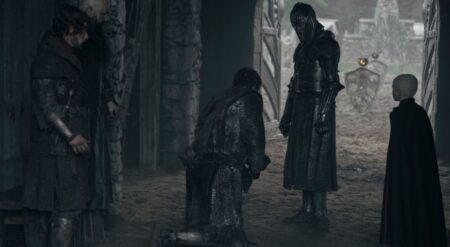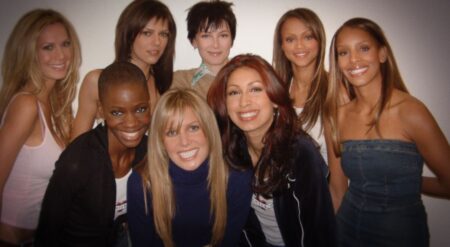With its foundation set in mystery and intrigue, it’s no surprise that Dear Hongrang (Tangeum) is a complicated and emotional viewing experience. Based on the novel “Tangeum: Geumeul Samkida” by Jang Da-hye, this latest Netflix kdrama makes its home in obsession, grief, and revenge, almost becoming interchangeable as its characters navigate the battles waging within and in the world around them. Despite occasionally stumbling on its many plot points, all roads ultimately lead to a sadly poetic end.
The titular Hongrang is the heir to a large merchant association in Joseon. His disappearance at the age of eight tore the family asunder, with his mother, Min Yeon-ui (Uhm Ji-won), going mad with grief. His half-sister, Jae-yi (Jo Bo-ah), is deeply affected, searching endlessly for her brother over the years.
In that time, her father, Sim Yeol-kook (Park Byung-eun), steps up as the interim leader of the association. Assuming that Hongrang will never return, he adopts Mu-jin (Jung Ga-ram) to train as the future successor.
Dear Hongrang weaves a multitude of plots, with some getting stuck in the process.
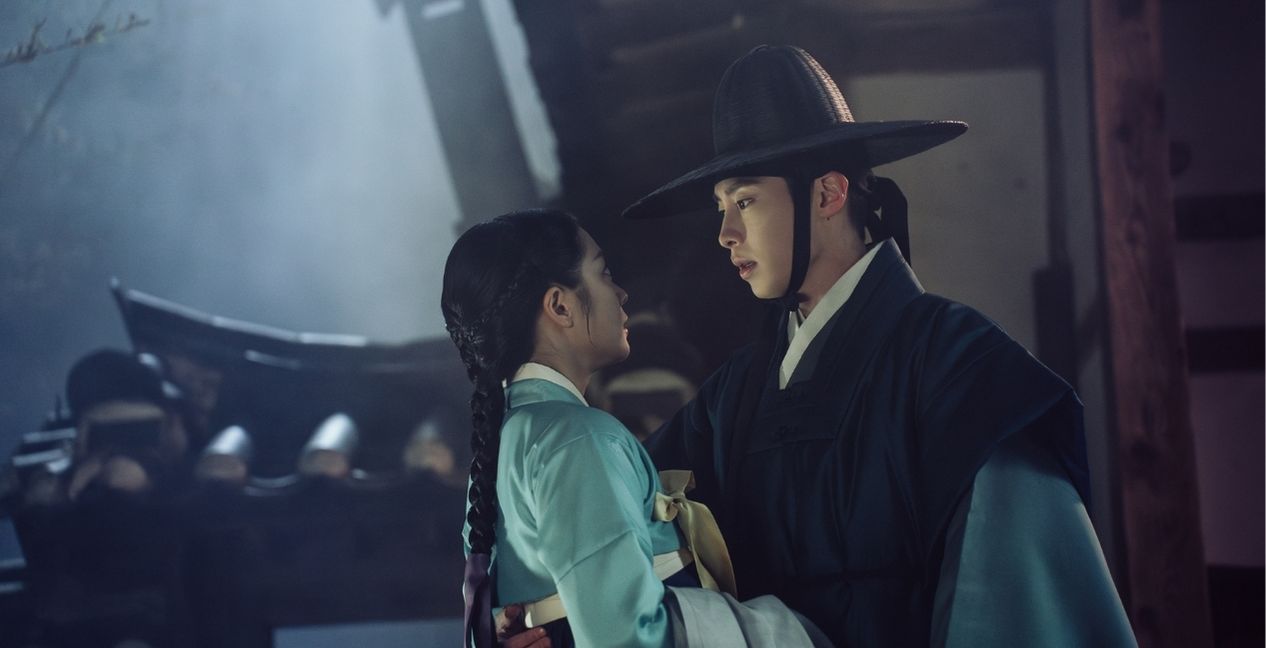
The family’s search is well-known across Joseon, and over the years, many imposters have tried to pass for the heir. Twelve years later, a mysterious young man shows up claiming to be Hongrang (Lee Jae-wook) and is the first to seem convincing. But goodwill has been worn away only to be replaced by doubt. Jae-yi refuses to believe that her brother is really back. As she seeks answers to validate his claim, Hongrang has an agenda of his own.
He’s not the only one. Dear Hongrang is ruled by its many scheming characters, sometimes to the series’ detriment. As the plot twists and turns, so do character motivations, as each character is forced to pivot with every change. The large cast of characters makes it difficult to focus early on as each splinters into different groups. Some plots quickly become more burdensome to the flow than others, easily tangling the story’s web.
Thankfully, writer Kim Jin-a gets things back on track halfway through, eliminating or at least sidestepping the more distracting plot points. This also includes Yeon-ui’s machinations as she tries to wrest control of the guild from her husband. This is a shame, considering how Uhm Ji-won completely embodies the full depths of Yeon-ui’s truly awful nature. The only redeemable factor is her love for Hongrang, but that borders on obsession.
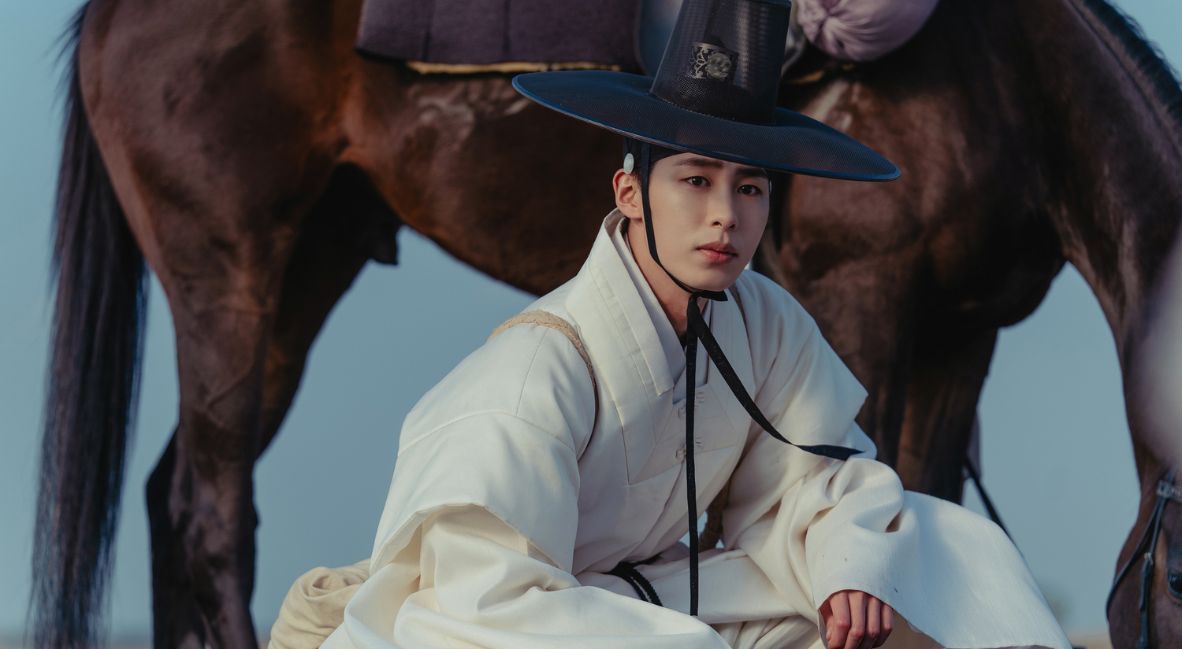
As Dear Hongrang progresses, the line between love and obsession blurs further between Jae-yi, Hongrang, and Mu-jin. The shifting dynamics among these three create a fascinatingly fun-to-watch love triangle. Even as the expected ships slide into place, the transformation of the relationships between these three makes it impossible to look away, even in the darkest of moments. The key to its success is in the performances of Jo Bo-ah, Lee Jae-wook, and Jung Ga-ram.
Jo Bo-ah’s Jae-yi learns to heal again. She starts Dear Hongrang in pain, with Hongrang’s appearance unburying all the doubts once more. With each discovery, she moves one step closer to healing. Her body language becomes more relaxed, and she opens up. This is the part about grieving that can be tricky. It takes time to move on, and through Jae-yi’s journey and Bo-ah’s performance, we can see how transformative and freeing it can be.
Similarly, Lee Wook’s Hongrang starts off restrained. He is an enigma set on a mission only he can focus on. Yet, he soon regains his humanity through Jae-yi’s influence and love. His ability to trust, love, and hope slowly becomes restored. This shows in his physicality, which becomes looser as his feelings grow. It’s no wonder the two characters are inevitably drawn toward one another.
Love can heal wounds, and a lack thereof can distort the soul.
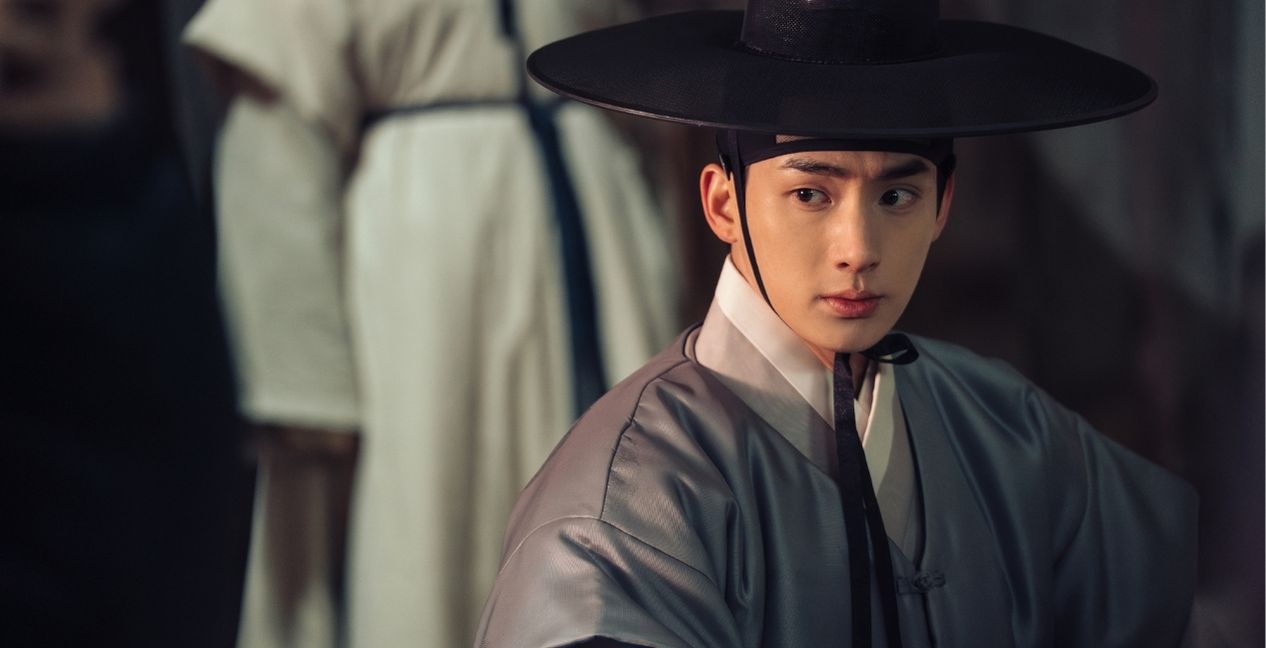
As the older brother figure, Ga-ram embodies the tortured soul of unrequited love. His arc is familiar in the tragic romance genre, yet it’s difficult not to yell at the screen as he spirals. Played with stoic ferocity, the only time Ga-ram allows his Mu-jin to falter is face to face with Jae-yi. Ga-ram’s full-bodied devotion is palatable in his scenes with Bo-ah, almost verging on uncomfortable when things don’t go his way.
One of life’s many tragedies is that it doesn’t go as we would dream. The loss of a son, the collapse of an empire, a love rejected—these things remind us of life’s joys. In Dear Hongrang, the understanding of loss and grief radiates throughout, with all roads leading to relief in some shape or form. Yet, it isn’t until characters can let go that they are truly free. That freedom, however tragic its form, leads to ultimate release.
Dear Hongrang is streaming exclusively now on Netflix.
Dear Hongrang
-
Rating - 8/108/10
TL;DR
In Dear Hongrang, the understanding of loss and grief radiates throughout, with all roads leading to relief in some way. Yet, it isn’t until characters can let go that they are truly free.





